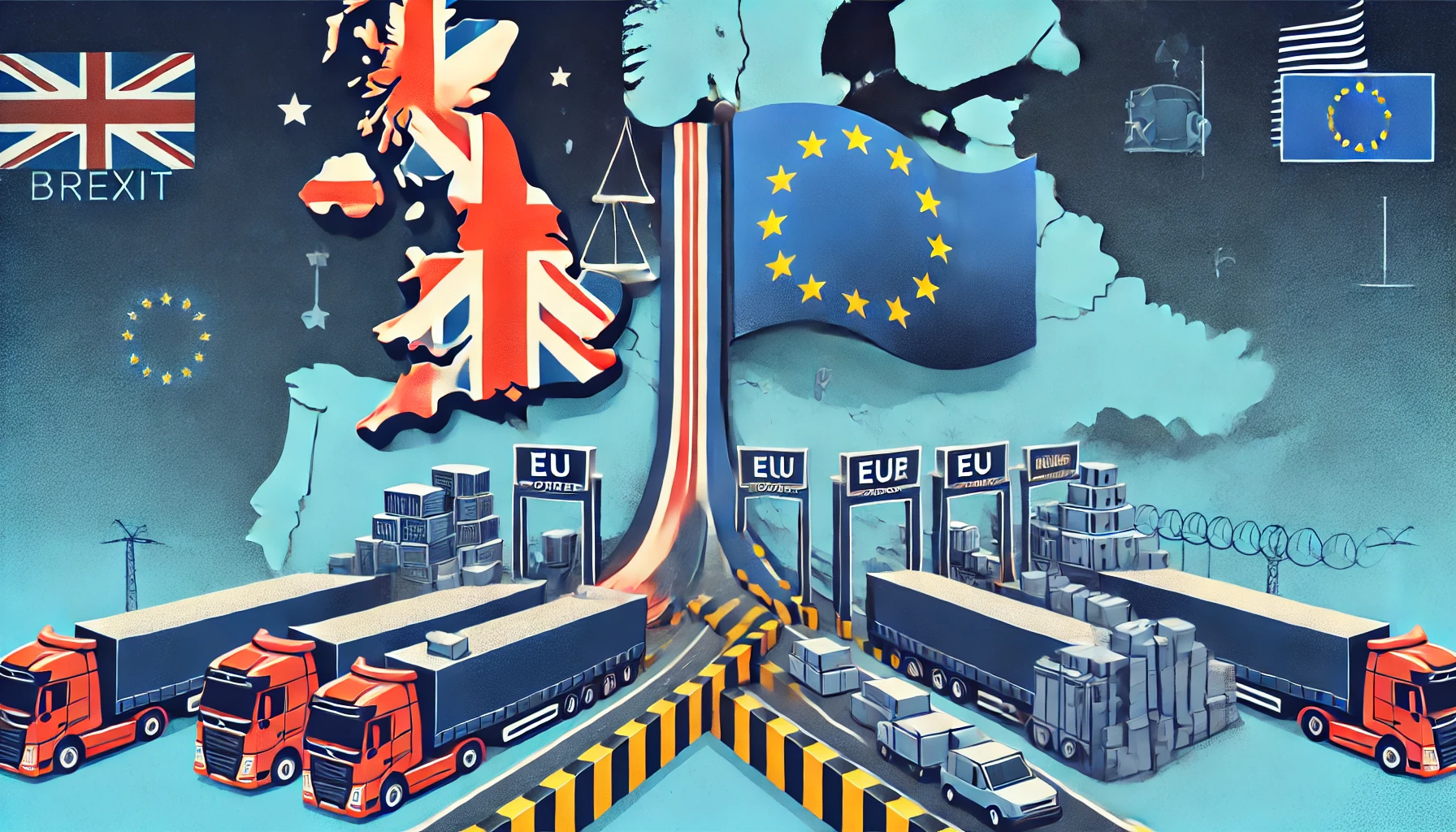To know how Brexit Impact on European Trade you must know that Britain has been a dominant economic power house in Europe. In the past, the nation excelled at trading becoming the global superpower unrivalled. The UK became part of the European Economic Community essentially the EU in its early days joining in 1971. So the UK played a huge role in the overall economy of Europe being one of the world’s top ten economies.
But decades later the economy of the UK is in dire condition. The UK finalized exiting the EU at the start of 2021 famously known as Brexit, reflecting the aspiration of British citizens and Brexit Impact on European Trade. But this hasn’t had the positive impact the nation hoped for rather made it even more vulnerable. The UK economy has become one of the worst performing in Europe, growing only by 0.1% in 2023 according to the World Bank. A year later in 2024, the IMF reported its economy only grew by 0.9% this is two years in a row for an economic giant showing a growth rate below 1%. The outlook improves by a slight margin in 2025 with a forecast of 1.6% by the IMF. But still, it’s a far cry from what this trading powerhouse once was. As this glorious nation changed from its former glory, so did the dynamics of trade in Europe.
UK in Pre-Brexit Era & Brexit Impact on European Trade
The EU is a unified body that promotes ease of doing business. It makes the transfer of goods and services efficient with better customs systems to reduce the backlog. Britain was part of this single market of the EU, able to trade freely with other member nations with ease. In 2019 the UK did almost 52% of its total trade with the EU. Almost half the nation’s total trade is done with the EU so being a member the UK benefited hugely. Even after Brexit, the Brexit EU accounted for almost 47% of the total trade of the UK in 2021. Likewise, the UK was the second largest export destination for EU member countries before Brexit.
UK in Post Brexit Impact on European Trade
After a year of transition, the UK finalized Brexit starting from 2021. At the same time, the EU-UK Trade and Cooperation Agreement (TCA) came into effect. TCA was put in place to sway the favor of trade in Britain’s favor. It introduced tariff-free and quota-free trade on many goods and services. But customs checks, regulatory compliance, and rules of origin which are part of non-tariff barriers came back into play once more for the UK. This has hindered the freedom Britain enjoyed while it had its membership in the EU.
Trade Decline between EU and UK & Brexit Impact on European Trade
The reintroduction of customs checks and regulations has halted the free trade that used to take place. The UK Office for National Statistics reported that trade of goods between the UK and the EU decreased by more than 4.8% in 2021 when compared to the pre-Brexit era in 2018. Even though Covid-19 played a role in this figure, Brexit was equally responsible. Brexit Impact on European Trade and Some of the sectors that were affected are:
Automotive Industry
The automotive industry benefits the most from an integrated market. So naturally Britain’s car manufacturers took a hit because of Brexit. The European Automobile Manufacturers’ Association reported a decline in exporting British cars to the EU when compared to the pre-Brexit levels. The TCA entails compliance issues as well as additional customs hurdles.
Financial Services
When Britain left the EU it also signed itself off from the single market. This means financial service providers are no longer able to provide their services across borders as they lost their passporting rights. This resulted in corporations moving assets to major EU hubs such as Dublin, Paris, and Frankfurt. The total value of these assets ranges in almost $1.4 trillion. At the same time, almost 7,000 jobs also left the UK which are related to financial services.
Agriculture and Fisheries
The UK now had to deal with stricter regulations such as SPS (sanitary and phytosanitary) checks and many certifications. Export of meat to the EU fell by more than 42% as the UK failed to meet standards. At the same time, exports of dairy products decreased by 19% in the post-Brexit era.
British fishermen were no longer permitted to fish in the EU water freely. They have been struggling with quotas placed on fishing. The UK required new certification for its shellfish due to Brexit. As a result, its export took a massive hit and dropped by almost 80%.
Supply Chain Shifts
Many manufacturers faced additional costs after Brexit. The delays at the customs check also added to the burgeoning burden. So businesses had to shift their supply chains to offset these additional charges. The London School of Economics conducted a study that revealed that importing goods from the EU fell by almost 25% after Brexit. Many companies changed their base of operations to the EU to reduce the cost.
Diversification
Both the EU and the UK looked to partner up with other nations for trading. The UK leaned towards the US and Australia, creating strong trade connections. Exports in non-EU countries increased 5 times faster compared to EU countries in the post-Brexit era. At the same time, the EU sought to do the same with nations that are bound to free trade agreements with the EU.
Brexit has changed the trading systems placed in Europe. The new trade barriers have changed the flow of goods and the supply chain. The EU increased trade amongst its member nations to offset the deficits left by Britain. At the same time, Britain is adapting to the new era with diversification. As time goes on the implications of Brexit on the trading dynamics of Europe will become clearer.


